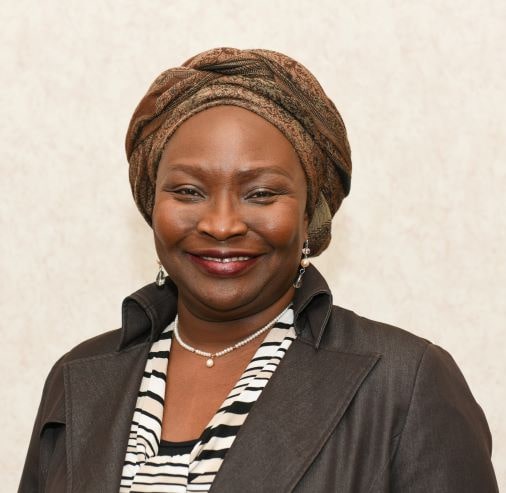Blogs

International Women's Day 2022: Dorothy Mensah-Aggrey
Dorothy Mensah-Aggrey is Curriculum Design and Adult Catechesis Coordinator at the Institute for Pastoral Initiatives at the University of Dayton.
What sparked your interest or passion for global learning? Are there ways that you facilitate global learning for our students? How so?
I was born and raised in Ghana, West Africa. Faith and education were very important in my family. I started kindergarten a year early, loved to read, and have never looked back. But especially important to my intercultural development was how we traveled across the country because of my father’s job. This meant that I was exposed to Ghana’s different ethnic groups and cultures, and its different languages and dialects at a very young age. In Ghana alone, over 52 different dialects are spoken. In addition to English, I can read French, some basic German and Spanish, and I am fluent in three dialects from Ghana. My love of languages and travel goes back to a very young age. Global learning teaches us the value of collaboration and cooperation to understand the world around us. Being open–minded, a good listener and observer is essential to understanding different cultures.
In the Akan language we have a proverb, etsir ko nko egyina, which loosely translates as “One head does not go alone to counsel” or as the saying goes in English “two heads are better than one.” We do not know better as one person what a larger collective of people need. Saviorism in relation to the African continent is one example of a lack of cultural awareness and humility. This proverb is an important message that keeps me grounded. Today, as a curriculum design specialist at the Institute for Pastoral Initiatives, I facilitate global learning by introducing our students to resources from around the world. These include but are not limited to images, documents, pastoral letters, celebration of liturgies, basically impressing upon students that there are other ways of being church, an enriching gesture to embrace the true diversity within religions as well as between them.
What is one aspect of your culture that you continue to embrace today?
Extended family is a cultural value that I firmly hold on to for a number of reasons. I have four sisters here in the United States; their children are my children and mine are theirs. We call each other every night to pray and talk about our news of the day. We have WhatsApp family groups to keep us connected with our families across continents as we learn from one another and share our collective wisdom. Raising children takes a village beyond the nuclear family.
This reminds me of a story from my mother’s wisdom. My father’s work was such that we had transportation and drivers readily available to us. One day we needed to go to the market but had no driver around to assist us so we had to take a taxi. Upon returning home, my mother thanked the taxi driver profusely after paying him. At my young age, I was puzzled by my mother’s action of expressing such profound gratitude to the taxi driver, after all, he had rendered a service. I asked my mother why she profusely thanked the driver, after all, she had paid him, I thought. My mother took out a bill of money, asked me to take a good look at it, and said, “The next time there is no driver and you need to go out, sit on the money, and try to get where you need to go.” I quickly got the message, which taught me about the dimension of gratitude we owe to service workers including taxi drivers, custodians, stockers at grocery stores, janitors, cooks and more who work tirelessly so that our lives can go on more smoothly.
What has been a culturally unique travel experience that you have had that shifted or gave you a new perspective? Are there regions of the world you have a particular interest in that you haven’t had a chance to explore further?
Two travel experiences in particular stand out to me: a 2016 trip to Mauritius and a 2019 trip to the United Arab Emirates where I visited Abu Dhabi and Dubai. In 2016, I visited Mauritius and was struck by the peaceful nature of this multi-ethnic society. I was informed that in the past, clashes had not been uncommon between the different ethnic groups, but that a new prime minister had managed to bring together the different segments of the society and smooth out the conflict. I found the people in Mauritius to be incredibly warm.
When I visited the UAE in 2019, more specifically Abu Dhabi and Dubai, I was really surprised by the very large Catholic community there. There was a mosque right next to the Cathedral, and the Cathedral was packed to the brim with about 500 people, more than I have found in any U.S. parish. If you wished to attend even a weekday Mass you had to arrive early to find a seat. Muslims and Catholics cohabited very peacefully in a dynamic religious atmosphere. I really loved this.
A place I would love to visit is Australia. I would love to both get to know the diverse communities in Australia and explore its natural beauty. As I have learned through my pastoral work, the dioceses in Australia are very active; they began the synodal process before the rest of the world embarked on theirs. After the privilege of interacting with them from a distance, I would love the opportunity to further explore their faith communities over there.
